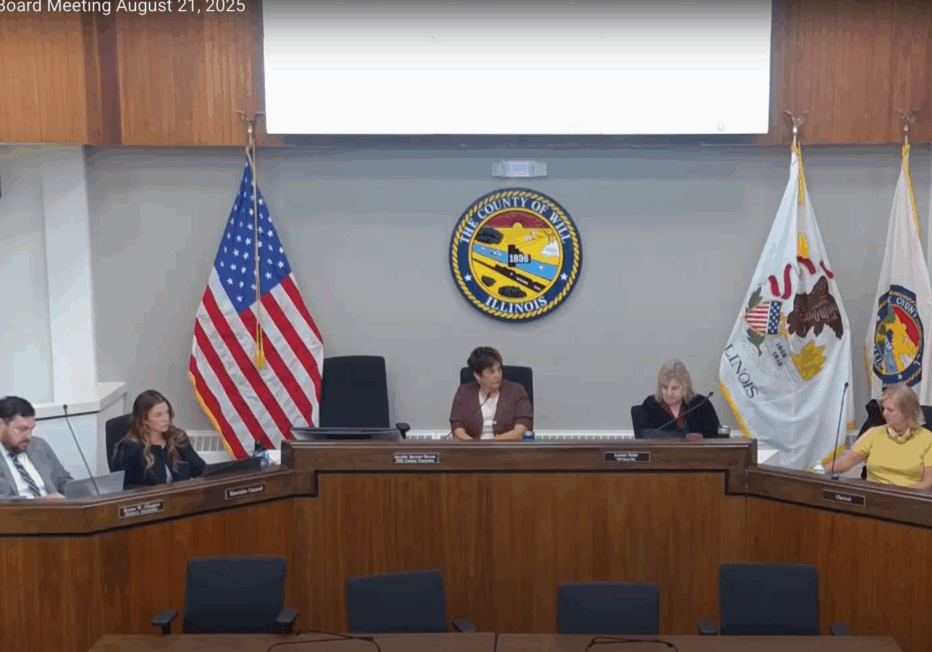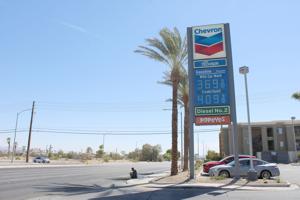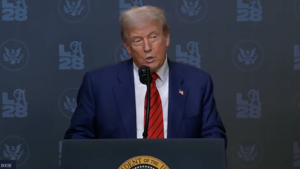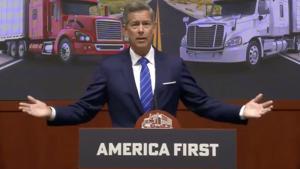
Will County Board Formally Opposes Heavier, Longer Trucks on National Roadways
Article Summary: The Will County Board unanimously passed a resolution opposing any federal legislation that would increase the size and weight limits for commercial trucks on the nation’s roadways. The resolution cites significant risks to public safety and accelerated damage to local and state infrastructure not designed for such vehicles.
Truck Size and Weight Legislation Key Points:
-
Opposition: The board opposes federal proposals to authorize 91,000-pound trucks and longer “Double 33s” double-trailer combinations.
-
Safety Concerns: The resolution states that larger trucks require longer stopping distances, have reduced maneuverability, and increase the severity of crashes.
-
Infrastructure Impact: The board argues that local roads and bridges were not designed for such oversized vehicles, which would accelerate wear and tear, leading to costly repairs.
JOLIET, IL – Citing concerns over public safety and the integrity of local infrastructure, the Will County Board on Thursday unanimously approved a resolution formally opposing federal proposals to allow bigger and heavier trucks on the nation’s roads.
The resolution, which passed without discussion as part of the Legislative Committee’s consent agenda, targets potential federal legislation that would authorize 91,000-pound trucks and longer double-trailer combinations, known as “Double 33s,” to operate more widely.
The board’s resolution argues that “heavier and longer trucks pose increased risks to public safety, as they require longer stopping distances, reduce maneuverability, and increase the severity of crashes, particularly on non-interstate roadways.”
Will County, a major logistics and freight hub, experiences heavy truck traffic, and the resolution emphasizes that its local and state infrastructure was not designed to handle the stress of such oversized vehicles. The document warns that allowing these trucks would “significantly accelerate wear and tear and lead to costly repairs and structural failures.”
Furthermore, the board stated that increasing truck size and weight limits would shift “hidden costs of freight transport—including infrastructure damage, public safety response, and environmental impact—onto local governments and taxpayers.”
The resolution aligns Will County with the Coalition Against Bigger Trucks (CABT), a national group of law enforcement officials, emergency responders, and safety advocates who have expressed opposition to the proposals. The county’s resolution notes that these groups have cited “documented risks and insufficient data on safety or infrastructure impacts” related to allowing larger trucks.
The approved resolution formally states that the Will County Board “opposes any federal legislation that would authorize heavier or longer trucks… on the nation’s roadways without a full and independent safety and infrastructure assessment.”
Copies of the resolution will be forwarded to the Will County Congressional Delegation, the Illinois Department of Transportation, and the National Association of Counties (NACo) to officially register the county’s position.
Latest News Stories

Arizona, Nevada pay less at the pump than California

EEOC celebrates 200 days of protecting religious freedom under Trump

U.S. mining operations discarding rare minerals at center of trade talks

Duffy warns states to enforce English proficiency requirements for truckers

Illinois quick hits: Chicago businesses at 10-year low; school admin survey closes soon

Pritzker unveils Illinois LGBTQ hotline amid debate over transgender athletes

WATCH: Trump ends funding for cashless bail policies, hedges on Guard deployment to Chicago

Hochul pushes back on Trump’s cashless bail funding threat

Meeting Summary and Briefs: Will County Board for August 21, 2025

New Lenox Residents Challenge Industrial Rezoning Plan Over Truck Traffic and Safety Concerns

Vendors Provide Free Replacements for Defective Park District Golf Equipment

Education Department finds GMU Violated Title VI

Redistricting opponents immediately appeal to CA voters

Former Transportation Secretary urges state taxpayer funding for Chicago transit
